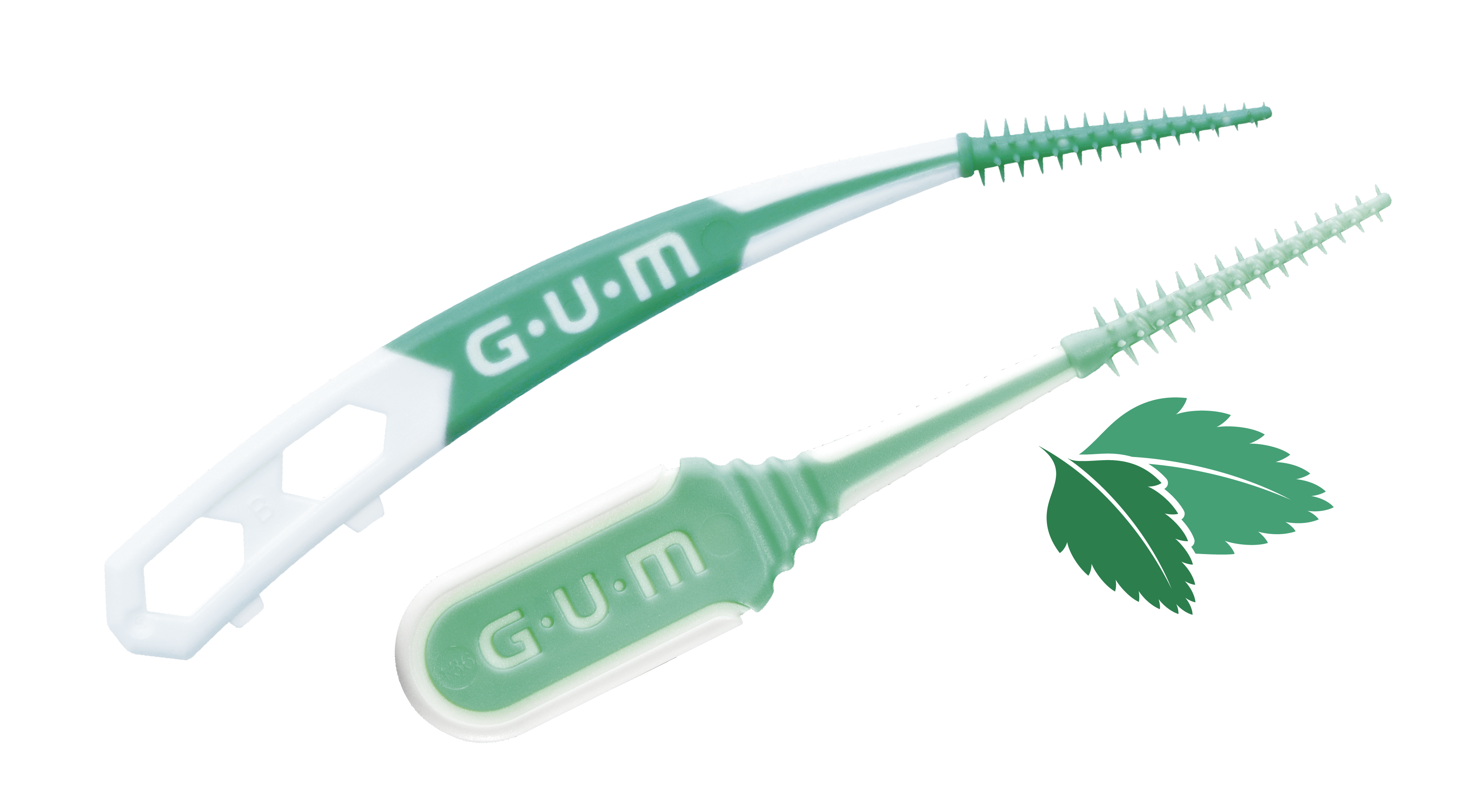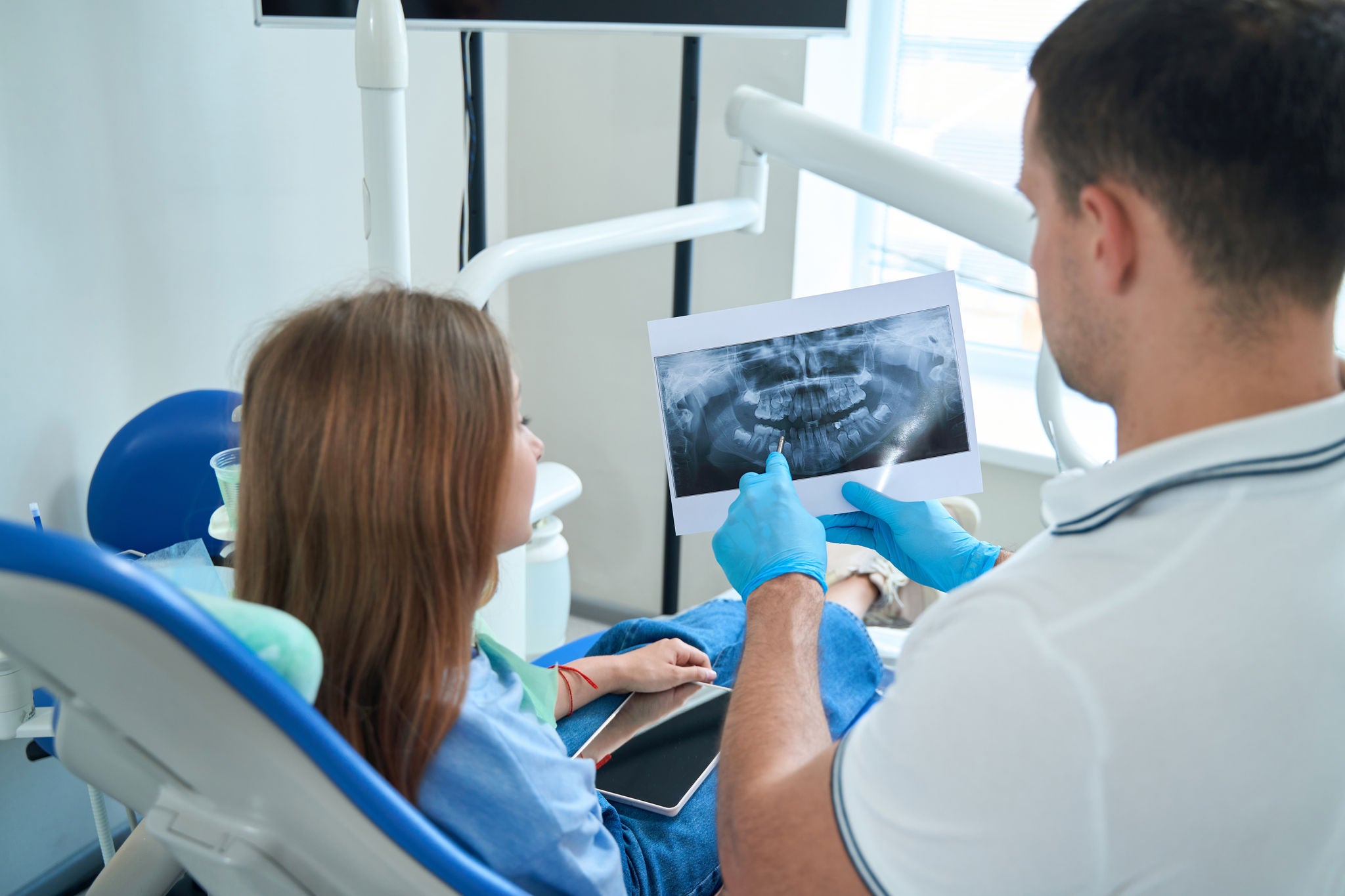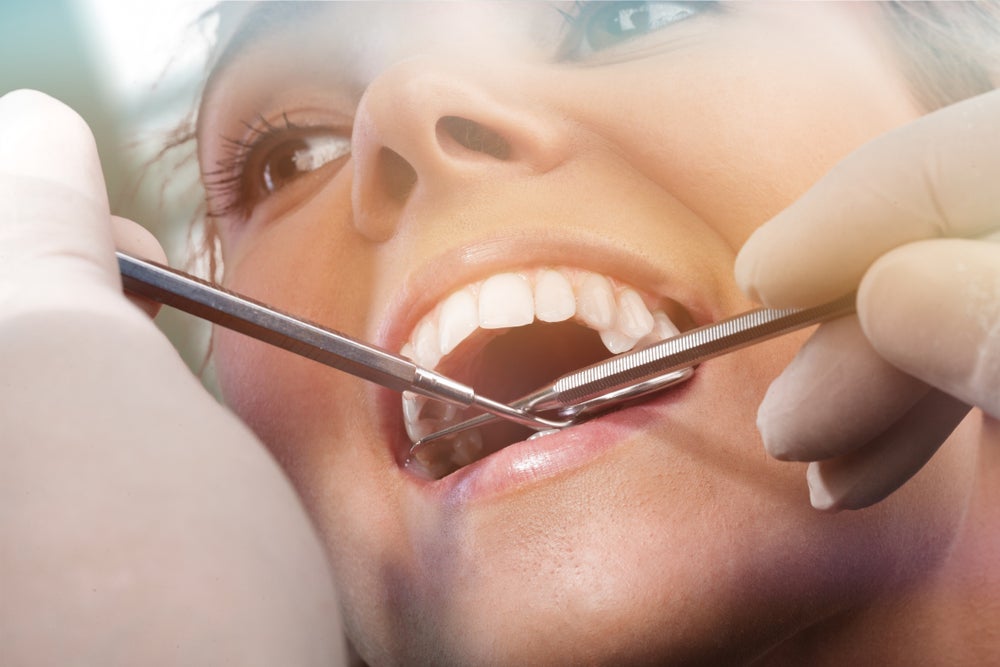
The Hidden Risks of Dental Plaque Build-Up
Most of us are familiar with dental plaque, that soft and sticky substance that forms a layer on the surface of our teeth and can feel fuzzy against our tongue. Plaque is mainly composed of colonizing bacteria in the mouth in combination with food debris and saliva.

Recently we discussed some reasons why it’s a good idea to pay attention to dental plaque build-up, emphasizing some of the more common and visible outcomes. Unchecked plaque build up can lead to basic problems, and most likely your dentist talked with you about them. But the potential ramifications of letting plaque get out of control go beyond bad breath and discoloured teeth.
Let’s examine some of the less obvious, but plenty ominous, risks of dental plaque build-up, reinforcing why it’s so vital to pay close attention to this aspect of your oral health.
The long-term risks of dental plaque build-up
When dental plaque builds up, the bacteria in it produce acids that cause the demineralization (structural weakening) of teeth - leading to dental caries (aka cavities). Plaque can also harden into greyish dental calculus (aka tartar), which generally requires a professional cleaning to remove.
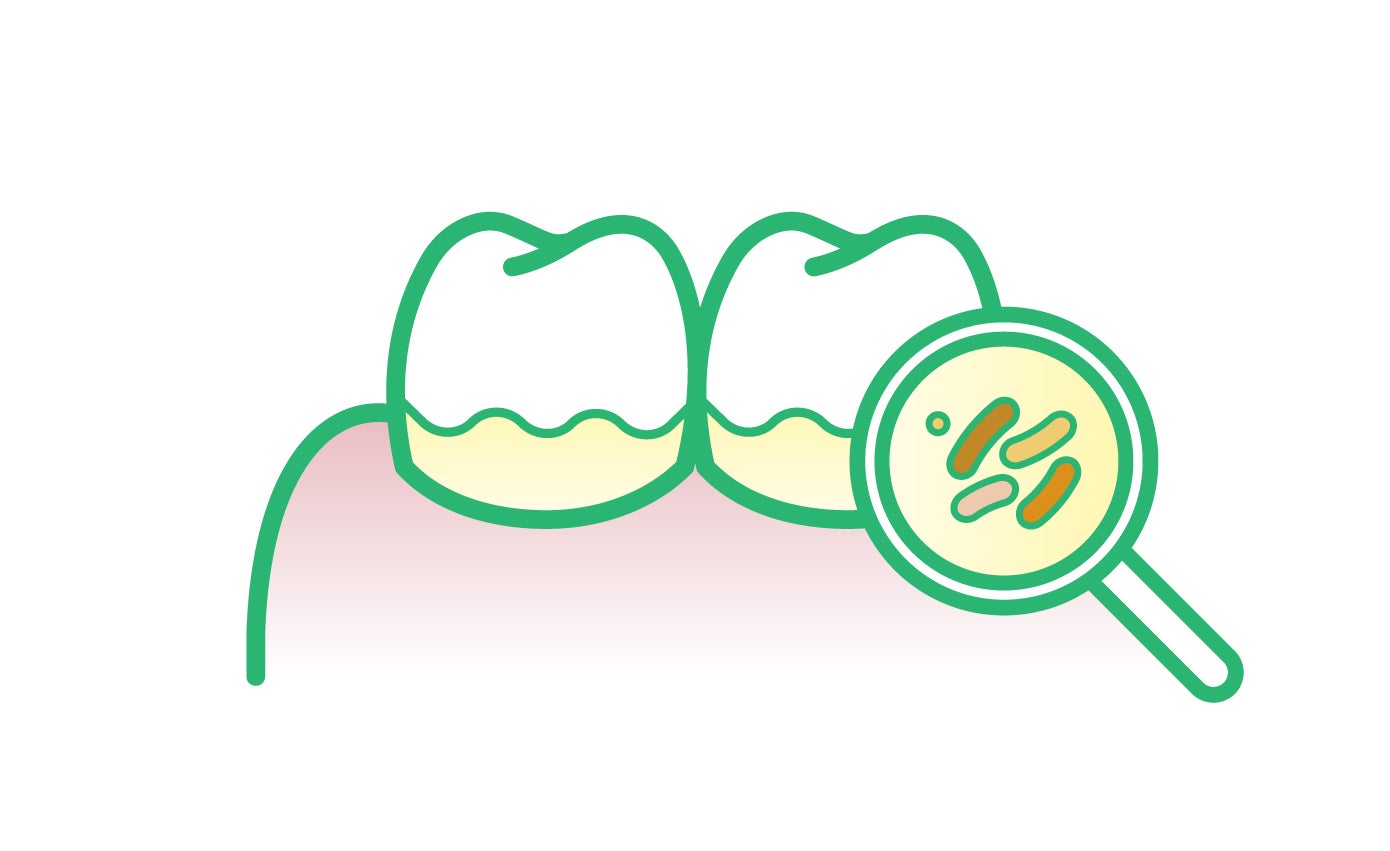
As we mentioned, the build-up of dental plaque can lead to some undesirable effects like bad breath and tooth discoloration. But it also can have major impacts on our oral health and overall health. Here are a few issues that can emerge as a result of dental plaque build-up:
Tooth decay
This is among the most common and recognizable oral health issues stemming from dental plaque. Tooth decay occurs when our tooth enamel becomes damaged and breaks down, in this case due to acids associated with plaque and its bacteria. This is critical to avoid because once a cavity due to tooth decay is present, it cannot be reversed, only stopped and treated.
Gum diseases
Gingivitis is an inflammation of the gums. When plaque builds up, it increasingly irritates the part of your gums around the base of your teeth, known as the gingival margin. Redness, swelling, pain and bleeding are symptomatic of gingivitis, which can lead to a more serious form of gum disease called periodontitis affecting the deep structures supporting the teeth, and can even result in tooth loss.
Losing teeth
It’s a scary thought, of course. And it doesn’t happen as often as the outcomes above. But when left unaddressed for too long, gum disease can progress to the point of tooth loss, along with a host of other serious oral health issues, which are both unpleasant and expensive to deal with.
General health issues
One point we address frequently here is that the impact of oral health is not restricted to your mouth. It’s a key part of your overall health and well being [1]. Various research has connected bacteria and inflammation in the mouth to medical conditions [2] including cardiovascular disease, dementia, and diabetes.
In many cases these compounding issues are impacted by a seemingly minor contributor: dental plaque build-up. So let’s explore some ways to be proactive and keep it from ever reaching that point.
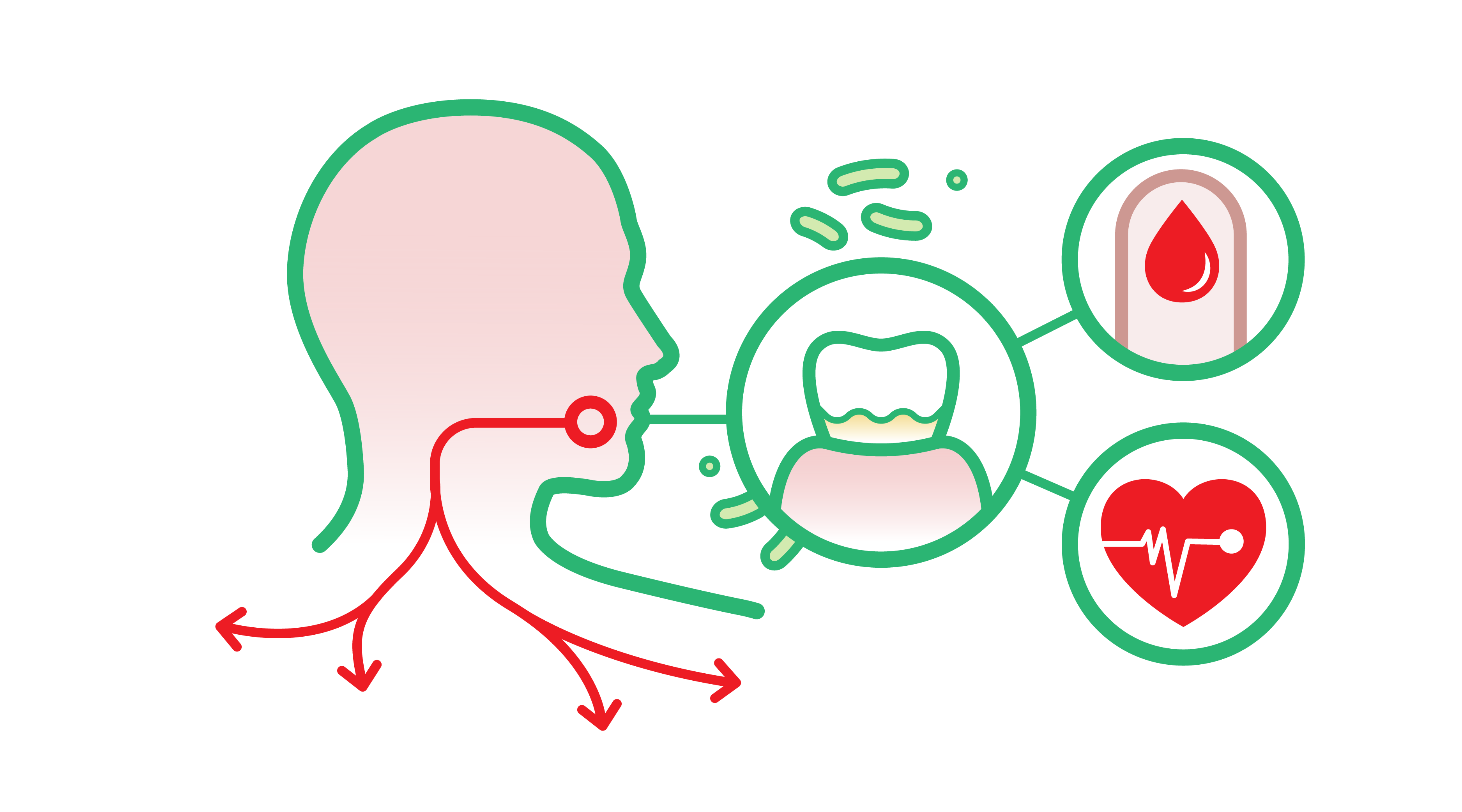
How to avoid dental plaque build-up
- Use floss, picks, or interdental brushes to clean in between teeth and dental appliances each day. An interdental brush can be especially useful for the latter.
- Brush your teeth at least twice a day, using a toothbrush that best suits your needs. Particularly suitable can be a toothbrush with soft bristles that can better reach the in-between and below the gumline areas.
- After cleaning all five surfaces of your teeth, rinse out your mouth with an anti-bacterial wash to eliminate as many of those plaque-causing bacteria as possible.
- See your dentist every six months for a routine check-up. Chat about your routine and invite them to demonstrate good form if you feel unsure of yours.
A little preventative care at home goes a long way. Keep in mind that while it’s of course important to brush and clean the most visible and accessible surfaces of your teeth (namely, those that shine through during a big smile), it is the unseen and harder-to-reach surfaces where plaque tends to build up – precisely because they are unseen and harder to reach. Those areas include interdental spaces.
Consistently making a point of addressing these surfaces will be your best defence against dental plaque build-up and its many unwanted consequences.
Be proactive against plaque
When it comes to oral health, most of us have a simple plan: take care of business at home, so that when we go to the dentist, they say, “You’re good. I don’t need to see you again for six months.”
So when dental plaque builds up and causes problems requiring attention? Well, it gums up the works.
Thinking about the hidden risks of dental plaque build-up will help you stay motivated to prevent it each morning and night when you go through your routine.

